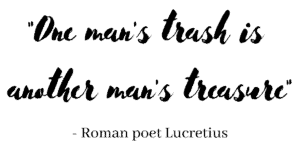It usually involves a kettle, a mug, a tea bag, a spoon and varying degrees of milk and sugar. It doesn’t take long to make a cup of tea, but making my morning cuppa got me thinking about air quality and here’s why.
Using any electrical appliance requires electrical energy, but how much energy depends on what the appliance is doing and how long it’s in use. We all know that boiling a cup of water will use less electricity than boiling a whole kettle of water as it takes less time and energy to boil a smaller amount. Sorry for stating the obvious, but bear with me!
What’s all this got to do with air quality?
Well, most of the electricity produced in the UK comes from burning fossil fuels (gas/coal). So, the more electrical energy we use, the more fossil fuel is needed to be burnt in power plants to keep up with the demand. And all those fossil fuels being burnt is not good. One, because fossil fuels are a finite resource with some estimations suggesting we could run out within the next 50 years. And two, because the burning of fossil fuels emits air pollutants that are harmful to both human health and the environment.
Add those pollutants to the emissions pumped out daily by road traffic and from home heating systems and it all adds up to lots of nasty things lurking in the air we breathe.
Air pollution, what can we do about it?
Well, we can reduce our dependence on fossil fuels by using less energy and exploring alternatives, such as renewables. Here are a few simple tips on how you could lower your energy usage at home, reduce your impact on the environment and save money at the same time.
Go and put on a jumper
Cue mass groan from everyone who’s ever heard their Dad say this. But, rather than immediately turning up the thermostat at home if you’re cold, sometimes all it takes is to add another layer of clothing. Keep warm, but don’t waste fuel: 21°C is comfortable for most people. In fact, turning the temperature up just 1 degree (from 21 to 22 degrees) could add £75 to your annual energy bill!
Were you born in a barn?
Another favourite from childhood, and no doubt shouted up and down houses across Northern Ireland to fight those pesky Autumn draughts. Closing doors in your house will keep the heat in as well as stopping cold air from circulating from unoccupied rooms.
Turn it off
The Energy Savings Trust states that up to £30 a year is wasted in the average home due to appliances left on standby. So, try to switch computers, tvs, chargers etc off at the plug next time you’re not using them, rather than just hitting the standby button. Switching off at the plug will save you money and won’t waste energy.
Games consoles are particularly bad – they remain in idle mode when they’re not in use, consuming almost the same power as when you are playing a game!
New gadgets
Most new home electrical appliances must now carry a label stating how energy efficient the product is. The level of efficiency is graded from A to G (A being the most efficient, and G being the least efficient) and is based on how many units of energy the product uses per hour (kWh consumption). The lower the product’s kWh consumption, the more efficient the appliance. Switching to more energy efficient appliances can significantly reduce your energy consumption and therefore your energy bills.
Be an active traveller
And by that, I mean be more active in your travelling. Take the bus to work, walk to school, cycle to the shops, even if it’s only once a week. Reducing your car journeys will reduce the amount of CO2 pumped into the atmosphere and exercising more will be good for your overall health. Find out more in our Active Travel article.
Burn things properly
Believe it or not, there is a correct way to burn things. If you aren’t using your fire correctly, you could be wasting money as well as damaging your appliance, your chimney and polluting the environment. Wood burning stoves and open fires contribute to air pollution, but with correct use, the impact of a wood burning stove can be reduced by a whopping 80%! For tips on using your stove or open fire correctly, including the most efficient fuel to burn (and how), visit the BurnRight website.
Recycle
Recycling conserves resources, saves energy, helps protect the environment and reduces landfill. When we recycle food waste, paper, plastic, glass, and other items, used materials are converted into new products, reducing the need to consume natural resources. By keeping a recycling bag in your bathroom for all those empty shampoo bottles, deodorant cans and face cream tubs can cut down on the amount of rubbish that goes to landfill.
Recycling reduces the need for extracting (mining, quarrying and logging), refining and processing raw materials all of which create substantial air and water pollution. As recycling saves energy it also reduces greenhouse gas emissions, which helps to tackle climate change. Current UK recycling is estimated to save more than 18 million tonnes of CO2 a year – the equivalent to taking 5 million cars off the road! Recycle Now
If it’s not dirty
When washing clothes, wait until you have enough washing for a full machine load and, unless the clothes are very dirty, wash at a lower temperature. According to the Energy Saving Trust, washing clothes at 30 degrees uses around 40% less electricity over the course of a year compared to higher temperatures. And some say washing at a lower temperature helps keep your clothes looking better, for longer – bonus!
Make sure your boiler is up to the job!
An inefficient boiler will waste energy. Get your boiler serviced every year to help ensure it is working safely and at optimum efficiency. Always ensure work is carried out by a registered boiler engineer.
Dare we mention Christmas
We don’t want to be a scrooge, but… Christmas is an incredibly wasteful time of year. Stating the obvious again, but it is the holiday of ‘too much’, from over-indulgent shopping for gifts and food to excessive non-recyclable packaging. This Christmas, try to shop wiser and think before you buy – ask yourself, ‘do you really need it?’. And when buying for others, try alternative gifts such as trees or indoor plants. Planting trees reduces energy consumption by eliminating the need for materials that would be used for gifts and wrapping paper and is also great for the environment. Research is inconclusive as to whether or not indoor plants can improve indoor air quality, but they can make you feel happier. Studies have shown that spending time around nature can have a positive effect on a person’s mood and energy levels.
So, to sum up….use only what you need
Back to making that cup of tea, air quality and switching things off. Saving energy at home can reduce the demand for electricity and lower your bills. Only use the amount of electricity you actually need – whether that’s water in a kettle, lights, heat, chargers or tvs. And where you can’t turn things off (eg fridge, freezer etc) opt for an appliance with a good energy efficient rating.
Thank you for reading this article and I hope you found the tips useful. But for now, I think you’ve earned yourself that cup of tea I keep mentioning… just be mindful of the water level.



